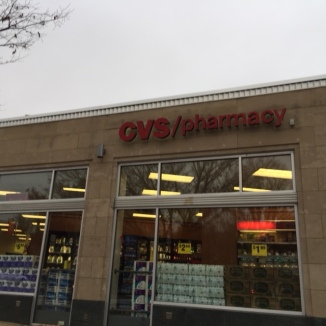As CVS and Aetna see it, the multi-billion dollar companies are getting together to tap into data and the “human touch” to transform and “redefine access” to health care.
How? By reducing costs, help fight chronic conditions and lower readmission rates through an “effective integrated community-based health care delivery system,” the companies predict.
Today, CVS, the giant pharmacy, announced it is buying Aetna, the giant insurer, for $69 billion — $77 billion including debt – that could have a significant impact on healthcare. The plan, if approved, would result in a company with an annual revenue of $240 billion – second only to Walmart in the U.S, according to news reports.
Ironically, as Congress seems confused about health care, the private sector is moving forward, with these major players aligning its futures into a growing force: personalized medicine. But the overall impact of the deal remains to be seen, and whether the proposed merger will even fly — with regulators surely ready to raise questions about this huge health insurance deal
And there’s another question. Is this good for consumers? The Coalition To Protect Patient Choice, said of the $200 per share offer: “This massive merger would greatly harm consumers, leading to less consumer choice and more exclusionary conduct, and (the) promised savings will not materialize.”
The move is considered by the companies as a “natural evolution as they seek to put the consumer at the of heath care delivery.” They said: “CVS Health has steadily become an integrated health care company, and Aetna has moved beyond being a traditional insurer to focus more on consumer well-being.”
CVS said the “transaction fills an unmet need in the current health system and presents a unique opportunity to redefine access to high-quality care in lower cost, local settings whether in the community, at home, or through digital tools.”
There are more than 9,700 CVS pharmacy locations and 1,100 walk-in clinics and other programs including 4,000 CVS Health nurses who provide in-clinic and home-based care, the company says. By connecting with Aetna, which serves more than 44 million people and its network of providers, CVS believes “there will be a better opportunity to utilize local care solutions in a more integrated fashion with the goal of improving patient outcomes.”
“This combination brings together the expertise of two great companies to remake the consumer health care experience,” said CVS Health President and CEO Larry J. Merlo. “With the analytics of Aetna and CVS Health’s human touch, we will create a health care platform built around individuals.”
Said Mark T. Bertolini, the Aetna chairman and CEO: “Together with CVS Health, we will better understand our members’ health goals, guide them through the health care system and help them achieve their best health.”
As a “benefit to consumers,” CVS says its pharmacies will include “space for wellness, clinical and pharmacy services, vision, hearing, nutrition, beauty and medical equipment, in addition to the products and services our customers currently enjoy.”
“An entirely new health services offering available in many locations will function as a community-based health hub dedicated to connecting the pathways needed to improve health and prescription drugs and health coverage.”
No doubt, a hub of controversy, too.
— Joe Cantlupe



 One of the top voices of concern is
One of the top voices of concern is 